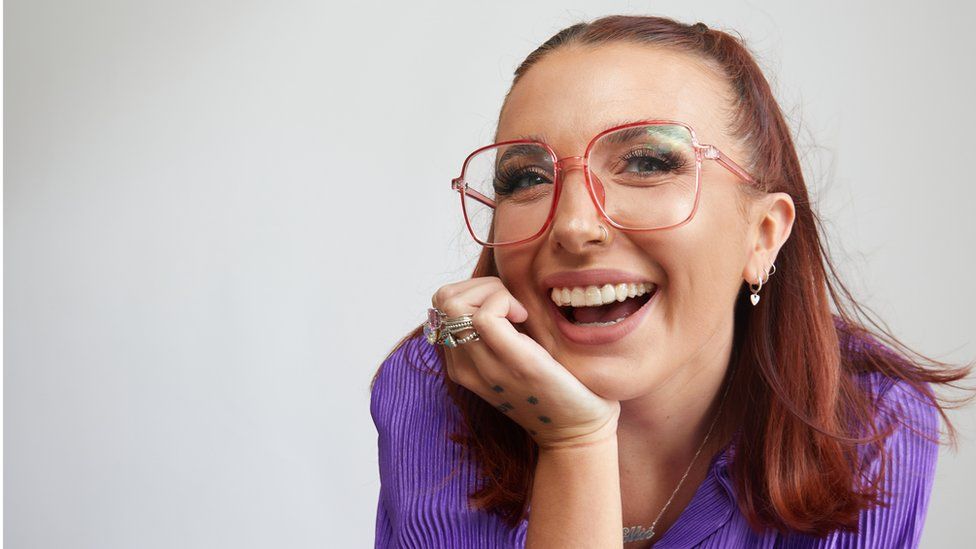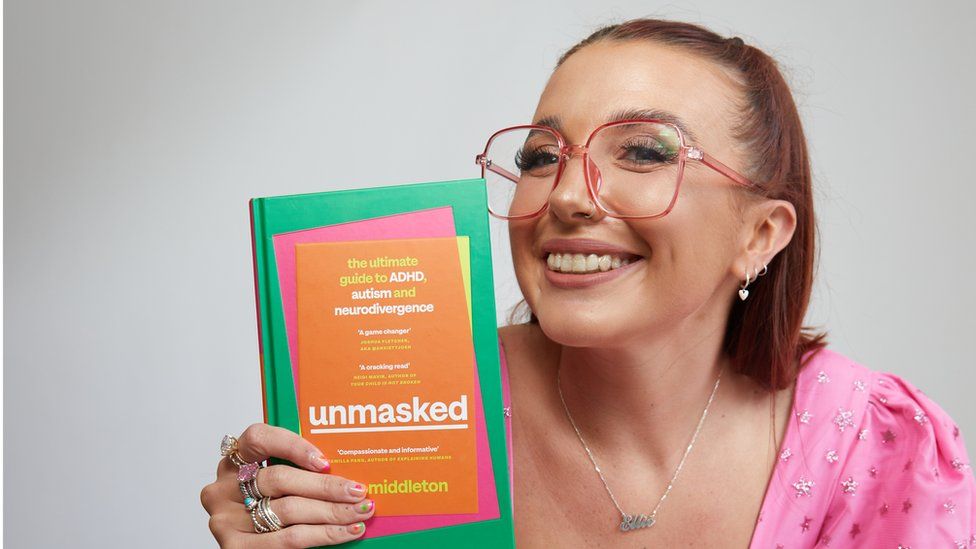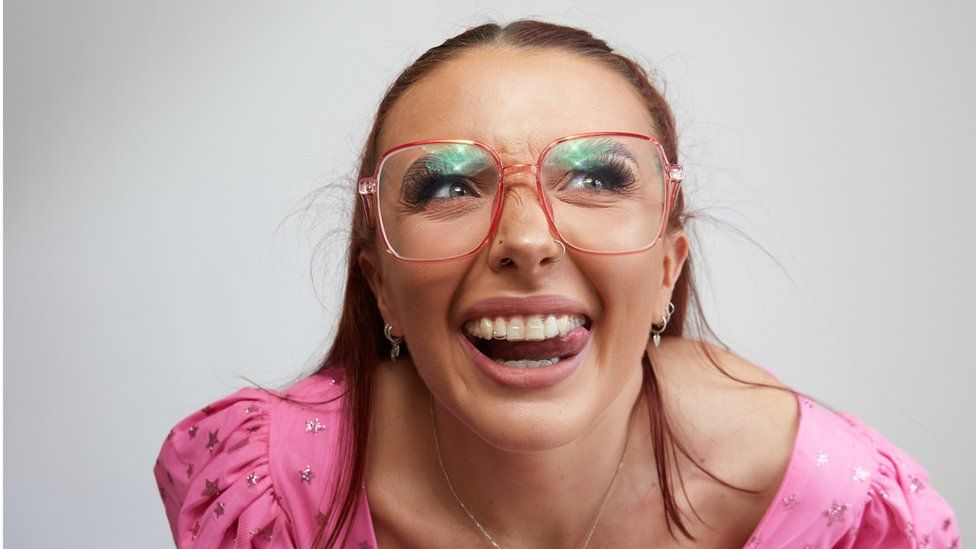
Ellie Middleton celebrated her second birthday in October.
Not her birth date, but the date that she says changed her life - receiving her ADHD diagnosis.
Six months later, she was diagnosed as autistic too.
Now Ellie 2.0, as she calls herself, has over 400,000 followers online, has done a TEDx talk, and her first book Unmasked: The Ultimate Guide to ADHD, Autism and Neurodivergence was recently published.
But until her diagnosis, life was very different.
Ellie dropped out of school during sixth form due to bullying and mental health struggles. She found it hard to keep a job and only went for ones that seemed less stressful because she became overwhelmed easily.
"I thought everyone was just as drained as I was after an eight-hour day in the office," she says.
"I would go home, I would basically have to lie in a dark room and scroll, and I'd struggle to have the energy to eat."
She says the diagnosis allowed her to finally work with her brain, not against it.
Learning the way my brain works has changed everything for me," she says, and describes herself as almost being a poster girl for what can happen when you get the answers you need.
It was a question from Ellie's counsellor about whether anyone had looked into why she took things so literally that put her on a path to diagnosis.
Ellie had told her counsellor she had fallen out with her then-boyfriend because he had stayed out after a football match instead of getting the train home as planned.
She couldn't understand why he would change his plans and why she wasn't able to be relaxed about it. And it wasn't the first time she had felt like this either.
She Googled "ADHD and autism in women" and says it was a "lightbulb moment" when she saw herself reflected back in the words others had written.
Desperate for more answers, she paid for an ADHD diagnosis privately because waiting for an NHS assessment could take five years.
Six months on from that she received her autism diagnosis too via the NHS's Right to Choose. This programme enables people to choose where they receive their assessments, providing their GP agrees to a referral, and includes some private practices. The assessment is funded by the NHS and waiting times are said to be only months.
Since her diagnosis, Ellie says she is the healthiest and happiest she has ever been and launching her book, so she could help others in a similar situation, was "amazing". But she says it isn't "all rainbows and sunshine".
It has also come with "grief", she says, as she processes her diagnosis which means she sometimes has to turn down opportunities to manage her energy levels.
"My battery is smaller than everyone else's," she says. "It's realising that actually, every single day for the rest of my life I'm going to have to carefully manage my energy, because If I don't, I get burnt out."

Ellie also believes one of the reasons she went undiagnosed until the age of 24 was down to what she calls "pretty privilege".
This is the idea that if your appearance is appealing - let's say pretty and thin - then you often have an easier ride in life and face fewer barriers.
"However, in the context of getting access to support, it almost is a hindrance," she says.
Although Ellie says this stopped her from being ostracised at school, she thinks it also stopped people realising she needed support. It made it far easier to cover it all up.
This "covering up" is often referred to as masking, and is where you copy another person instead of being your true self. It disguises aspects of behaviour that might seem different to non-autistic people
"I was able to mask, and my support needs were quite low. It was always put down to 'all teenage girls have trouble with friends'," Ellie says, remembering the difficulties she had keeping friendships at school.
"Actually, it was that I have a social and communication disability."

After receiving her diagnoses Ellie set up Unmasked, an online community to help those navigate late-diagnosis.
For Ellie, meeting others through Unmasked has been vital in helping her to realise which of her traits are down to autism or ADHD because, in the early days of research, women and girls weren't studied.
One question Ellie's GP asked her when she was inquiring about an assessment was whether she collected information about "birds, cars, trains and planes".
This might help unearth typical special interests in boys but girls often have other special interests that don't show up in the same way.
"I don't collect information about any of those things, but that's mostly because of the fact that I'm a 24-year-old woman and not an eight-year-old boy," she says.
Instead of planes and trains, it's indie bands and football for Ellie, which people didn't realise could indicate that she is autistic.
Ellie says biases in the diagnostic criteria mean the experiences of women and other marginalised groups often go undiagnosed until adulthood.
As a result, Ellie wants to see more practical and emotional support offered to those who receive a late diagnosis of autism or ADHD to give them support with managing their needs.
Two years on from her own diagnosis, Ellie is hopeful for the future.
"I'm looking forward to continuing to learn more about myself as my unmasking journey continues."
From BBC
